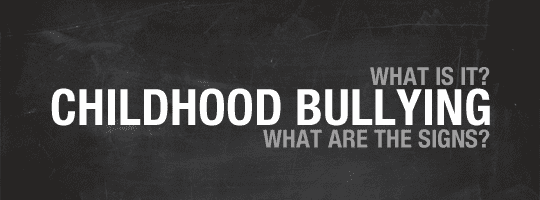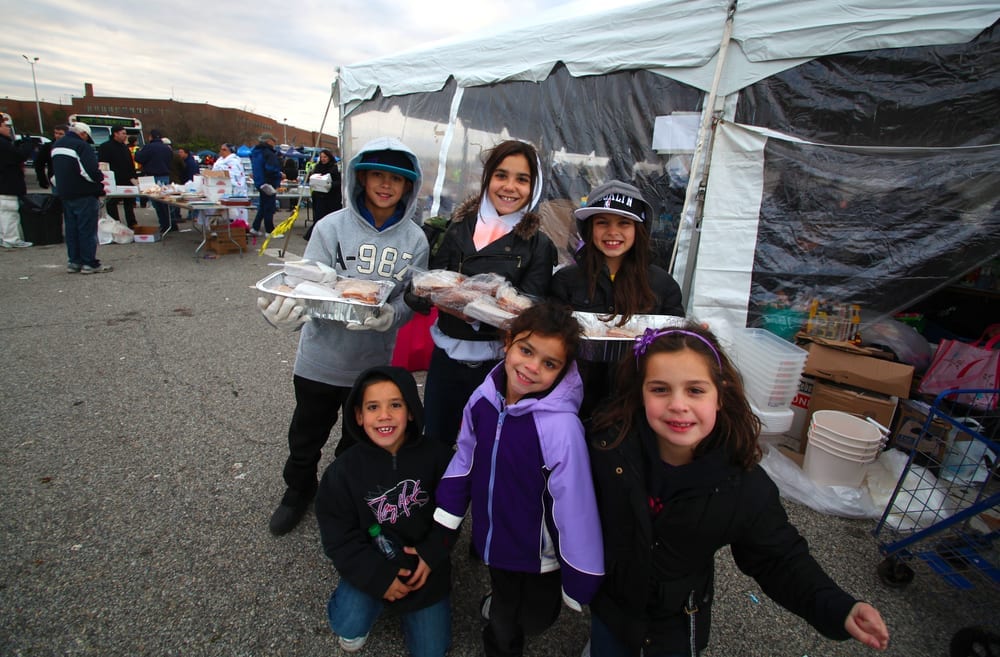
Childhood Bullying isn’t a new thing, unfortunately. However, lately, it seems like the situations surrounding the bullying have gotten worse. It is very important to know the facts about bullying, even if you don’t think bullying affects your child.
There are many types of bullying:
Physical bullying includes hitting, punching, kicking and other types of physical harm, as well as destruction of a child’s property.
Verbal bullying includes teasing, name-calling, taunting and racial slurs, as well as spreading gossip or malicious rumors.
Cyberbullying includes harassing emails, instant messages and text messages, as well as intimidating or threatening websites, blogs or posts.
According to Bullying Statistics, the numbers are alarming.
- About 42 percent of kids have been bullied while online with one in four being verbally attacked more than once.
- About 58 percent of kids and teens have reported that something mean has been said about them or to them online.
- Other bullying statistics show that about 77 percent of students have admitted to being the victim of one type of bullying or another.
- The American Justice Department bullying statistics show that one out of ever 4 kids will be bullied sometime throughout their adolescence.
- 46 percent of males followed by 26 percent of females have admitted to being victims in physical fights as reported in one report of bullying statistics by the Bureau of Justice School.
The Signs
I know as parents, we wish we could be there at our child’s school and watch out for them while on the playground. If you are worried about childhood bullying and if your child is a victim of it, here are some of the signs that might help:
Is your child:
- Becoming withdrawn
- Showing fear when it is time to go to school
- Increasing signs of depression
- Decline in school performance
- Speaking of another child with fear
- Noticeable decline in how the child sees him or herself
- Signs of physical altercations, such as bruises, scrapes and other marks
If you answered yes to any of these, after talking with your child, you may want to discuss details with your child’s teacher or principal.
According to Scholastic, here are some more warning signs to look out for:
- Increased passivity or withdrawal
- Frequent crying
- Recurrent complaints of physical symptoms such as stomach-aches or headaches with no apparent cause
- Unexplained bruises
- Sudden drop in grades or other learning problems
- Not wanting to go to school
- Significant changes in social life suddenly no one is calling or extending invitations
- Sudden change in the way your child talks calling herself a loser, or a former friend a jerk
- It might be difficult to spot signs of verbal or emotional bullying, but you should be on the lookout for indications that your child’s self esteem has been affected and you’ve noticed their reluctance to go to school.
It is important to take bullying seriously and not brush it off. The effects of bullying can have serious issues, if not now, later on down the line. It’s important to talk to your kids about bullying.
How To Help
1. Give your child room to talk.
2. Let them tell you about the issues they are having at school.
3. Try not to embarrass them as they talk to you.
4. It may seem silly but try not to laugh, this may be a serious issue to your child.
5. Make sure they know they can always come talk to you about anything.
6. No matter how small the issue may be, it’s important to bring up details with a teacher at your child’s school. Letting others know about the situation at hand can allow them to be on the look out.
There is a great article on GreatSchools.org that explains how to determine if your child is a bully or a victim and how to take appropriate, effective action.
We hope that this article helps you understand Childhood Bullying. If your child is experiencing a serious issue with bullying, please take appropriate action.
Modern Day Moms
Modern Day Moms is an award-winning publication centered around motherhood that is real and unfiltered. Basically, we don't sugarcoat anything and aren't afraid to tell you the truth. Let's be best friends, we will make you feel more normal.




Leave a Comment